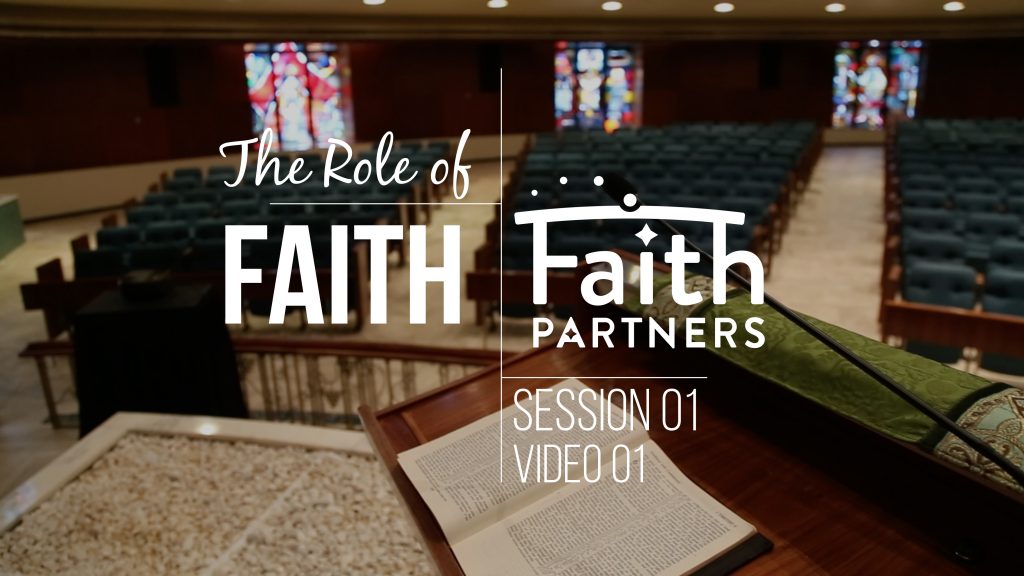The pandemic has changed everything! The last 18 months or so has been a challenge for most everyone, but with challenge comes opportunity.
I have rested in the words of Paul from Romans 8:28, “And we know all things work together for good for those who love God, to those who are called according to His purpose.”
In 2018, Faith Partners decided to explore distance learning in response to the many inquiries from remote congregations concerned about the cost-effectiveness of delivering an in-person training series in their rural areas. The necessity of this model has been magnified by our circumstances during the pandemic. This approach compliments our in-person work on a community or state-wide levels and addresses the needed changes brought on by the pandemic. Two years ago, few people used on-line platforms, but now like Google – Zoom has become a verb or way of life to communicate with others.
Distance learning is a learning method where the trainer/teacher and clergy/laity (learner) are separated geographically. Distance learning, also called distance education, e-learning, and online learning, form of education includes the use of various technologies to facilitate learner/trainer and learner to learner communication. Studies have shown that distance education can be just as good as traditional face-to-face education with little significant differences with learning outcomes.
Distance Education is a modern way of learning that allows learners to study within their own space and time without being physically present. This is where “the rub” is for me moving from didactic to skill development and the creation of an empathic bridge required for a “relational ministry”. As one person remarked, “it is hard to relate to people through pixels”. Regular team meetings coupled with distance learning will help in bringing together an authentic community with the transparency and acceptance desirable in such a ministry.
The up-side is that the lay person or clergy who have busy schedules, now have more time available with this type of learning and technology. The benefits are better flexibility, adaptability, and accessibility.
Faith Partners has developed a model using a series of 32 short (5-10 minute) videos, ministry guides, and a curriculum for a person to navigate learning process to establish this important life-saving, life-giving ministry and service to our congregational communities. The model is supplemented by a series of on-line (Zoom) meetings to tie it all together.
We are looking to pilot this model – free of charge – with a few interested congregations. If you are interested or know a congregation that would be interested; please contact me at drewbrooks@faith-partners.org or call 512-417-2307. We can explore the possibilities!
In the meantime, for you already established congregational teams – the video series is a wonderful way to on-board new team members or to review certain topic areas for existing members. We will be offering these videos via our website for a reasonable cost by subscription with details to come after the first of the year.
Each team member or interested congregational members will have the ability to navigate through the three stages of growing this congregational team ministry with the use of these essential tools and strategies. The first stage is addressing stigma or resistance by building congregational support or readiness. The second stage is building capacity of each team member and the ministry itself or development. And finally, the stage of building an evolving ministry that lasts the test of time with on-going education, network opportunities, planning and evaluation, which is inherent in a changing ministry that changes with the changing needs of the congregation or sustainability.
This is vital, as we know two of the main pillars of this ministry are prevention and recovery support strategies. It is essential to view prevention across the life-span, as people are vulnerable during the many transitions in life from changing schools or work, to marriage or divorce, to death or disease, to retirement or unemployment. Each transition has its unique challenges and needs. Ministry activities can work to equip each person with the necessary knowledge, skills, and support to navigate these changes. Addiction as a chronic illness requires an on-going process for healing and a supportive environment to help individuals and families experience long-term recovery. This makes the importance of an effective, sustainable ministry critical for any congregation.
These tools and strategies are a guiding light allowing us to rest in the words of Paul, to work together, to love God, and to listen to what you are called to do according to His purpose. Hopefully, to be a light of compassion and hope for our world whatever form it takes – in pixel or in-person!

